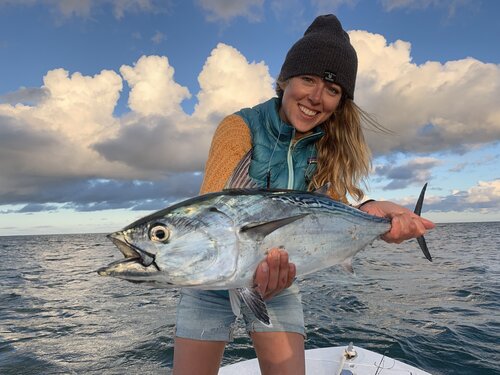With Earth Day approaching it is important to look at ways climate change affects areas. URI’s GSO explored “Effects of Climate Change on Recreational Fishing and Boating” this past week. PHOTO CREDIT: seagrant.gso.uri.edu
The University of Rhode Island Graduate School of Oceanography hosted the Rhode Island Sea Grant Baird Symposium webinar series “Effects of Climate Change on Recreational Fishing and Boating” this Wednesday, April 13.
The virtual event took place from 6:30-8 p.m. and discussed the issues of climate change in regards to recreational fishing and boating.
The webinar, titled “Climate Change Opportunities for Anglers and Boaters,” was the second of a two-part series engaging Northeast recreational anglers, boaters, fisheries and climate experts in discussions about how climate change is affecting these traditional uses.
The webinar also discussed strategies and actions that individuals, governments and industry are taking to respond to these changes.
Event participants included the University of Rhode Island Graduate School of Oceanography (GSO) hosting the event, the Rhode Island Sea Grant organizing the event, Rhode Island Saltwater Anglers Association, Ørsted, Ocean Conservancy and others on the panel and in the Zoom audience.
Jennifer McCann was the organizer for the event series. She is the director of the U.S. Coastal Programs at the URI Coastal Resources Center, director of extension for the Rhode Island Sea Grant and focuses on coastal and ocean management policy in her roles.
“The purpose of this session is to hear from you all about the strategies and actions you are implementing to adapt to climate change,” McCann said. “And also to hear from some of our industry, government and environmental advocate leaders about some of the big ideas that they are implementing in order to respond to climate change.”
David Monti is a licensed charter captain serving in leadership roles on several marine and fisheries-based boards and organizations, including the Rhode Island Saltwater Anglers Association and the Rhode Island Marine Fisheries Council. He writes about recreational fisheries issues for several publications including the Providence Journal. Monti was the host of the event.
Part one featured a discussion on “Adapting to the Changing Climate” in which panelists talked about strategies and actions they have implemented to adapt to climate change.
“One of the key findings was that we are catching striped bass in December, January and February which is highly unusual,” Monti said. “That would indicate that the fish did not migrate.”
The speakers of part one included captain Chris Willi of Block Island Fishworks Outfitters and Charter Fishing, James Monti, recreational fisher and specialist in emergency medicine and captain Richard Lipsitz, angler and winner of the 2021 Block Island Inshore Fishing Tournament.
Monti introduced part two of the session looking at “Big Strategies Towards Resiliency.” Panelists shared approaches that industry, government and environmental advocates are taking toward resiliency that will also enhance recreational boating and fishing.
The speakers of part two included Gregory DeCelles, chief science officer for Ørsted Offshore North America, Meredith Moore, director of the fish conservation program for The Ocean Conservancy, Chris McGuire, director of ocean programs at The Nature Conservancy and Jonathan Stone, executive director of Save the Bay.
These panelists discussed strategies and actions their organizations are making towards environmentally-friendly fishing and adapting to climate change.
“We love working with communities and fishermen across the United States to try to improve the fishery management and make it as good of a system as possible,” Moore said. “There is no right way to do it. We have to think about all the different ways and ask the right questions so that we are using all this information and planning for the future of fishery management.”
The panelists and their organizations are all taking action towards a greener future and cleaner oceans.
“Back in 1995, Save the Bay built a very robust habitat restoration program focused primarily on fisheries, salt marshes and eelgrass beds,” Stone said. “We work with a lot of issues including fishery management, policy issues and habitat restoration.”
The event finished by announcing the winners of a photo contest. The webinar series hosted a photo contest to depict the effects of climate change. The winners of the photo contest were Abbie Schuster and James Turek.





